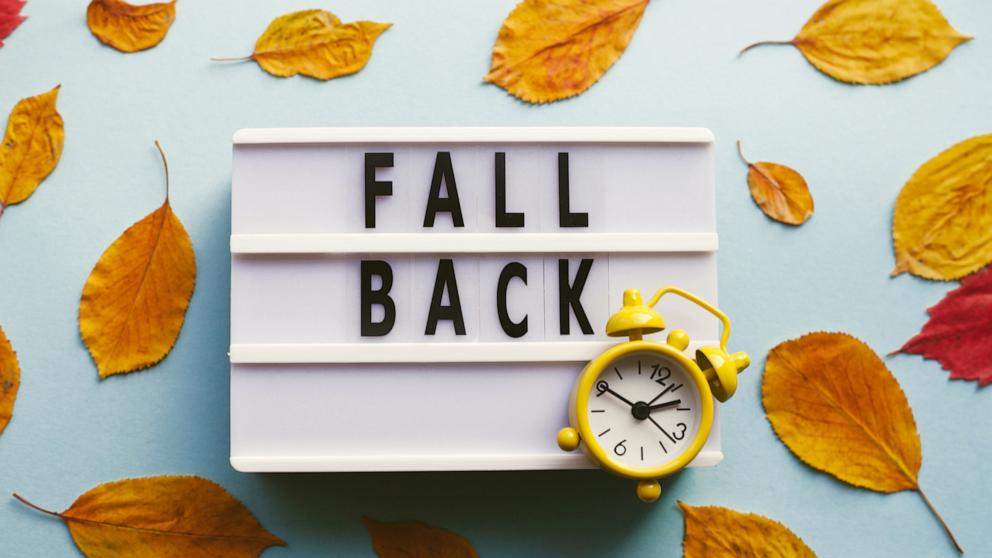


Fall is here, which means the end of daylight saving time is also near.
Since passage of the Energy Policy Act of 2005, daylight saving time in the United States has begun annually on the second Sunday in March and ended on the first Sunday in November.
When daylight saving time begins in March, clocks "spring forward" one hour, and when it ends in November, clocks "fall back" one hour.
Here are six questions answered about the upcoming time change.
This year, daylight saving time ends Sunday, Nov. 3, with clocks rolling back one hour at 2 a.m.
With the change, it will get darker earlier in the evening across the United States.
When clocks "fall back" at the end of daylight saving time, people gain one hour of sleep.
On Sunday, for example, falling asleep at 10 p.m., will really be like falling asleep at 9 p.m., once clocks roll back one hour at 2 a.m.
Battle over daylight saving as America falls backOn the flip side, when clocks "spring forward" in March at the start of daylight saving time, people lose one hour of sleep.
Younger kids in particular can be thrown by the change in time, but there are steps that parents and guardians can take to help, according to parenting expert Ericka Souter.
"When our kids are thrown off schedule and they lose even an hour of sleep, it can lead to more tantrums or more tears, and it can even affect their appetite," Souter told ABC News previously. "So it's really important to have a plan going into this weekend."
Souter recommends encouraging more physical activity during the day to ensure kids are tired at bedtime, serving healthy food options to kids during the day and shutting down devices at least one hour before bedtime.
Souter said it's also important that kids keep their regular sleep schedule over the weekend and that they have a dark, comfortable place to sleep at night.
For parents of young children, Souter said they can also consider shortening their kids' afternoon naps.
Daylight saving time became established law in the U.S. in 1918 with the passage of the Standard Time Act, according to the U.S. Naval Observatory's astronomical applications department.
The time change was implemented as a way to maximize daylight hours to help save on energy consumption during World War I.
Over the next several decades, legislators made unsuccessful efforts to repeal daylight saving time nationally, and some individual states and cities reverted to non-daylight saving time hours.
Effects of daylight saving time on your healthIn 1966, Congress passed the Uniform Time Act, which established a uniform daylight saving time throughout the U.S., according to the U.S. Department of Transportation, the federal agency that oversees time zones.
Under the Uniform Time Act of 1966, states that observe daylight saving time must follow the federally-mandated start and end dates.
States may also "exempt themselves from observing daylight saving time by state law," according to the DOT.
In 2022, the U.S. Senate unanimously approved a measure, the Sunshine Protection Act, that would have made daylight saving time permanent across the U.S., however, the legislation was never brought to a vote in the U.S. House of Representatives.
Hawaii and Arizona -- with the exception of the Navajo Nation -- are the only two states in the nation that do not participate in daylight saving time, according to the DOT.
In addition, five U.S. territories also do not participate in daylight saving time: American Samoa, Guam, Northern Mariana Islands, Puerto Rico and the Virgin Islands.
Some health experts argue that daylight saving time disrupts the body's natural day-to-night rhythms.
In 2023, the American Academy of Sleep Medicine formed a coalition to advocate for state and federal legislation making standard time permanent across the U.S. Other organizational members include the National Sleep Foundation, Save Standard Time, Sleep Research Society and Society for Research on Biological Rhythms.
The shift in time has been associated with increased heart attacks, strokes, abnormal heart rhythms, sleep disruption, mood disturbances, and even suicide, according to research published in the Journal of Clinical Sleep Medicine.
ABC News medical contributor Dr. Darien Sutton recommends that ahead of changing the clock, people alter their bedtime gradually to accommodate the change.
Sutton said it's also OK to take naps if you feel fatigued due to the time change, but try to limit the nap to 30 minutes and take it before 3 p.m.
Lastly, Sutton said that when the clocks "fall back," it's important to increase your exposure to sunlight during the day, especially in the morning, and to limit your intake of alcohol and caffeine.
Dr. Avish K. Jain, DO, a resident physician at Cooper University Hospital, a medical contributor to the ABC News Medical Unit, contributed to this report.